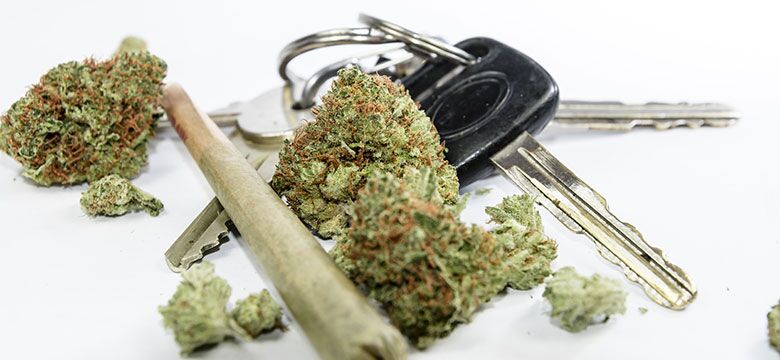Cannabis may be legal in California, but driving under the influence of the plant is a crime under Section 23152(f) of the California Vehicle Code. The problem is, California does not have a reliable method for determining cannabis impairment. The root cause being that cannabis impairment is highly subjective, and might be difficult for law enforcement to quantify.
Despite the issues in determining whether someone is actually impaired, the penalties for a California marijuana DUI are harsh. If you or a loved one are facing charges for this offense, call a San Diego marijuana lawyer from McElfresh Law at (858) 756-7107 to schedule a free case consultation.
California Does Not Have an Objective Standard for Determining Cannabis Impairment
In California, you commit cannabis DUI if you are in control of a motor vehicle while your mental abilities are so impaired by cannabis that you are unable to drive as well as an average, sober person. The same holds true of alcohol or any other drug. But with alcohol, the authorities have an objective standard for measuring impairment. If your blood alcohol concentration exceeds .08, you are too drunk to drive.
When it comes to setting a legal limit for THC, the primary psychoactive component of cannabis, the National Highway Traffic Safety Administration has said that such limits are “not meaningful.” Nonetheless, several states have imposed THC limits on drivers. In Washington and Colorado, the limit is five nanograms per milliliter of blood. In Nevada, that threshold it two nanograms.
These limits may be legally binding, but they are not scientifically meaningful because there is insufficient clinical evidence that links cannabis impairment to a certain concentration of THC in a person’s bloodstream. Furthermore, cannabis impairment is highly subjective. One person may be high after a few puffs, yet another person might not feel the effects of marijuana until massive quantities are consumed. Finally, THC is detectable in a person’s blood long after a high has run its course.
How Do California Authorities Test for Cannabis?
Although there is little evidence connecting THC blood levels to cannabis impairment, law enforcement is anxious for an objective testing standard. According to California Highway Patrol officer Allan Zang, “it would be very helpful to have an established blood-THC limit.” Such limits, he continued, “wouldn’t just be helpful for us, but for the District Attorney’s Office as well.”
This means that prosecutors have a tough time proving beyond a reasonable doubt that an individual is cannabis-impaired based on the sort of evidence they currently collect in DUI cases. When the police suspect you of driving under the influence of cannabis, they will likely ask you to submit to:
- Field Sobriety Tests – The officer may ask you to step out of your car and perform tasks that impaired people generally have trouble completing. You are free to refuse these tests, although the arresting officer will generally try to present them as being mandatory.
- Portable Mouth Swab Test – In some California counties, the police have begun taking swabs of DUI suspects’ mouths. This portable test, which you can refuse, is able to detect if you have recently consumed cannabis or other drugs orally. However, this type of evidence has not yet been used in a California cannabis DUI case.
- Chemical Test – After an officer arrests you on suspicion of DUI, you will be asked to give either a blood or urine sample for a chemical test. A blood sample will generally return positive for cannabis if you have consumed it in the last 48 hours. A urine test, on the other hand, may come back positive weeks after your last smoke.
Other crucial evidence in cannabis cases are your appearance and statements during the traffic stop. Remember that you are under no obligation to answer the police’s questions when you’re pulled over. You just need to show your driver’s license, registration, and insurance information. Anything else you say or do will likely be used against you.
Get Help with Your Marijuana DUI Today
You should take all criminal charges seriously, especially those for marijuana DUI. If found guilty of this offense, you face large fines, time behind bars, and more. That is why it’s important to contact the California marijuana lawyers of McElfresh Law. We will look at your case from every angle and advise you of the next best steps.
If you’ve been charged with a marijuana DUI, contact us today at (858) 756-7107 to schedule a consultation.
California marijuana laws change frequently. For updated information, see the following pages: Medicinal Uses of Marijuana and Recreational Marijuana Business
